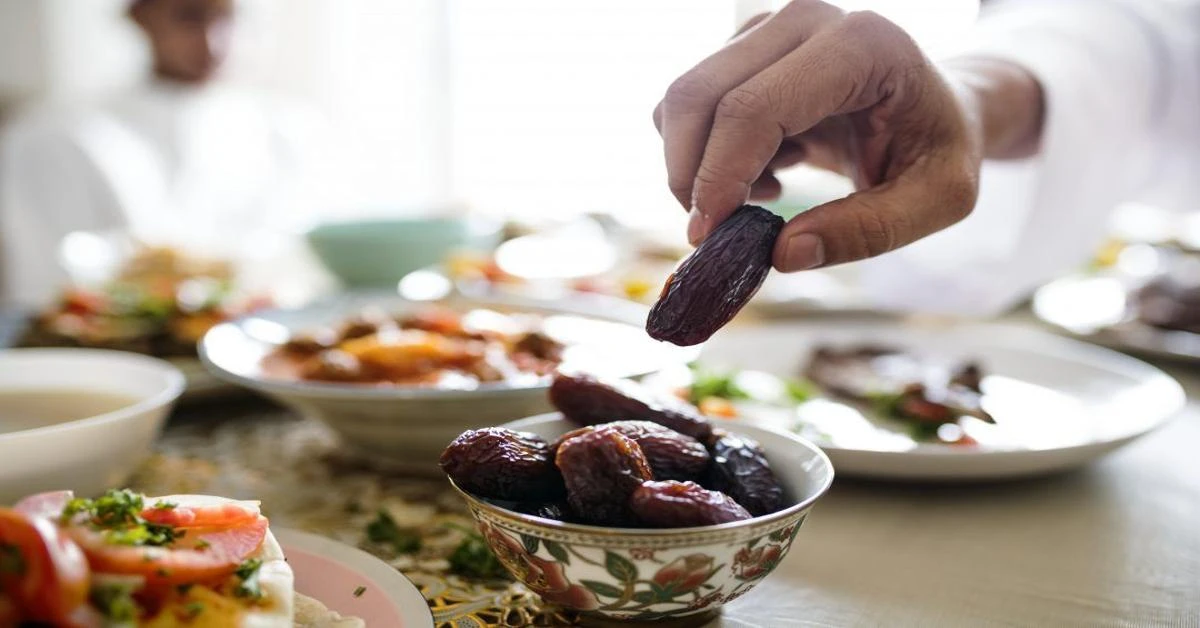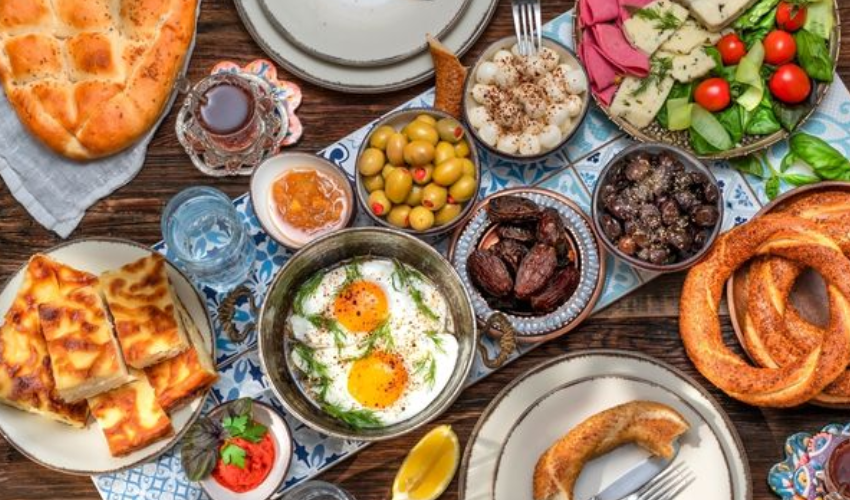Nourishing sahur, iftar choices during Ramadan

Is fasting the same as autophagy? Should one choose a full meal or stick to breakfast foods during sahur? Dietitian Bahattin Aslan addresses common queries regarding the ideal sahur and iftar diet
EXCLUSIVE BY KEVSER ERBAY — For sahur, which is the the last predawn meal before the start of the daily fast, it’s important to choose foods that are nourishing and provide energy throughout the day.
Is fasting the same as autophagy? Should one choose a full meal or stick to breakfast foods during sahur? What are the mistakes in nutrition habits during Ramadan? Türkiye Hospital’s dietitian Bahattin Aslan addressed the most common queries regarding the ideal sahur and iftar diet in an exclusive interview with Türkiye Today.
He highlighted the common errors made during sahur and emphasized the importance of consuming a light meal, stating, “The most significant mistake during sahur is preparing a meal akin to an iftar spread, consisting of high-calorie and fatty foods. Such a diet can compromise the health of the stomach and intestines, potentially leading to illness.”
‘We should open our fast with water, dates, or olives’
“At Iftar, the common problems include drinking excessive amounts of water upon breaking the fast, diving straight into the main course without starters like soup, opting for overly fatty and fried dishes, eating too quickly and in large quantities, consuming tea and dessert immediately after eating, and drinking acidic beverages,” he added.
“Since we remain thirsty throughout the day until iftar, we should open our fast with water, dates to raise our blood sugar, or olives to increase our low blood pressure, and then continue with soup to not immediately burden our digestive system,” Aslan stated.
“After taking a break, we should consume the main meal. Consuming high-protein and satiating foods at sahur, such as eggs, low-salt cheeses, whole grain breads, dates, pastrami, and minced meat, will make it easier for us to fast comfortably the next day,” he stated.
Choosing the best dates: Jerusalem (Medjoul), Mecca
“When selecting dates, opt for those that are fresh, flavorful, plump, slightly juicy, and rich in fiber. This brings us to the more expensive varieties, such as Jerusalem and Mecca dates. The Jerusalem Medjoul date stands out as a top choice because of its high levels of carotenoids, phenolic acids, folic acid, iron, calcium, magnesium, and other essential minerals, offering a notably sweet flavor. On the other hand, Mecca date, containing 6.7 grams of fiber per 100 grams, is preferred by those suffering from constipation problems and those who prefer dates with less sugar, despite its drier texture, due to its high fiber content.”
2 menu suggestions for sahur
Dietitian Aslan suggests two diet plans for sahur that can be followed to avoid feeling thirsty the next day:
First menu: Two eggs, one slice of cheese, one tablespoon of honey, two walnuts, one date, one apricot, two to three slices of whole grain bread (whole wheat, rye, bran), tomatoes, cucumber, greens, tea, sugar-free fresh juice, low-sugar compotes.
Second menu: Two-egg omelet made using minced meat, one slice of cheddar cheese, whole grain bread, 500 milliliters salt-free buttermilk, plenty of salad, and one piece of fresh fruit.

How much water should we drink
The dietician urged people to stay away from fried high-fat food, heavy pastries, as well as sugary desserts to avoid thirst during Ramadan.
“Between sahur and iftar, it’s necessary to consume 2 to 2.5 liters of fluids, with a significant portion coming from water. If one finds it difficult to drink this much water, it can be supplemented with lightly sugared lemonade, compote, salt-free buttermilk, sherbet and mineral water,” Aslan stated.
Fasting same as autophagy
“Autophagy is a process that usually starts after 12 hours of fasting, where the body eliminates unnecessary and damaged cells, repairs, and rejuvenates itself. This process is also activated during fasting in Ramadan, helping the body to destroy harmful cells and metabolites and thus rejuvenate itself. Hence, fasting is considered a healthy practice and dietary regimen for healthy individuals, enabling the body to repair and rejuvenate effectively,” he elaborated.



